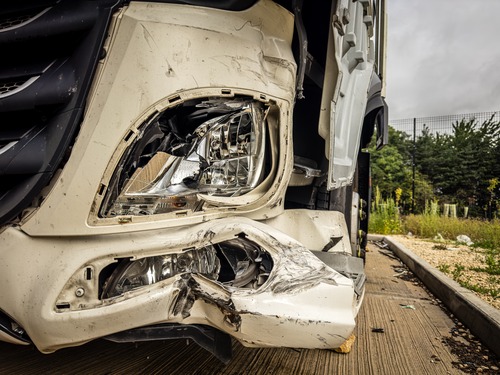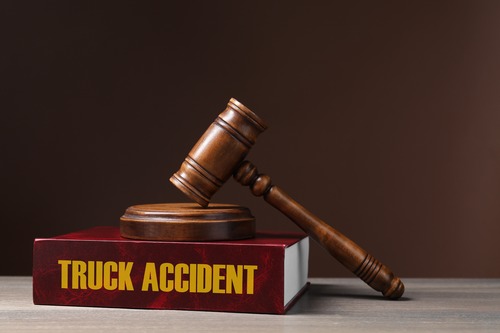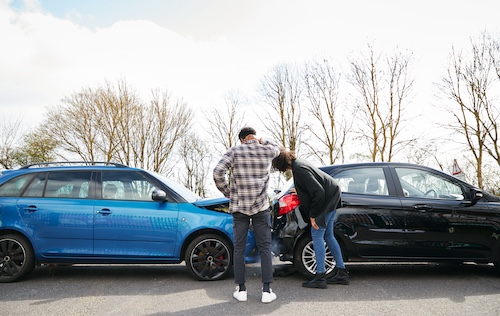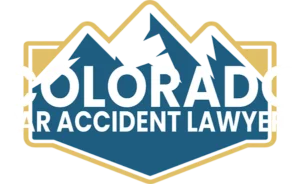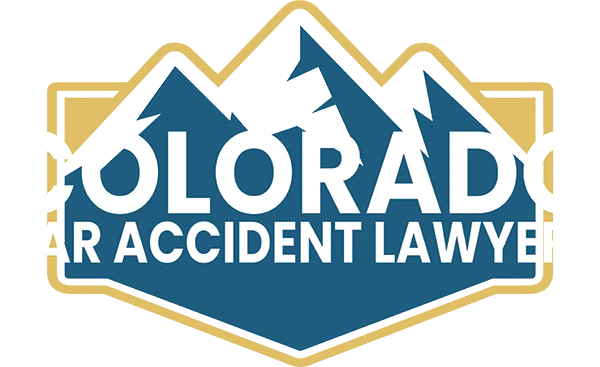At Colorado Car Accident Lawyers, we are dedicated to helping individuals who have been injured in truck accidents across Colorado. Our experienced team understands the complexities of truck accident cases, from dealing with large trucking companies to navigating federal regulations. We offer personalized legal strategies to ensure our clients receive the maximum compensation they deserve. With a commitment to aggressive representation and compassionate client care, we stand by you every step of the way.
Truck accidents in Denver can result in severe injuries, significant property damage, and complex legal challenges. If you find yourself involved in a truck accident, understanding what steps to take is essential to protect your rights and ensure fair compensation. From immediate actions at the scene to the legal process that follows, knowing how to navigate the aftermath of a truck accident can make a significant difference in the outcome of your case.
In this blog, we will guide you through the crucial steps to take after a truck accident in Denver and explain how working with an experienced Denver truck accident attorney can help you navigate the legal process and secure the compensation you deserve.
Immediate Actions After a Truck Accident in Denver
If you are involved in a truck accident in Denver, taking immediate action is crucial to your safety and legal protection. Follow these steps to ensure that you handle the situation properly.
1. Ensure Safety at the Scene
First, check for any injuries to yourself, passengers, or others involved. Understanding why accidents happen is crucial, so if possible, move your vehicle to a safe location to avoid further accidents or traffic congestion. If you are unable to move, turn on your hazard lights and remain in your vehicle until help arrives.
2. Call 911 and Report the Accident
Contact law enforcement immediately to report the truck accident. A police officer will document the scene and create an accident report, which is essential for your insurance claim and potential legal actions. According to Colorado law (C.R.S. 42-4-1601), you must not leave the scene of the accident without providing necessary information. This report can provide crucial details about the truck driver’s actions and fault in the crash.
3. Gather Information from All Parties Involved
Collect key information from the truck driver, other drivers, and witnesses. This should include names, addresses, insurance details, and vehicle registration numbers. It is important to gather details about the truck involved, including its gross vehicle weight rating (GVWR). If possible, take note of the truck’s license plate number and the company’s name. This will help in identifying the right parties for your insurance or legal claims.
4. Document the Accident Scene
Take clear photos or videos of the crash scene, vehicle damage, and any visible injuries. Capture the condition of the road, traffic signs, and the location of the vehicles involved. Photos can be helpful for your truck accident attorney and insurance company during the claims process. Detailed documentation can also provide critical evidence in case of fatal crashes or disputes about the fault in the accident. Organizing the collected data in a table can further enhance comprehension by presenting essential statistics such as vehicle configuration, cargo body type, and hazardous materials.
5. Seek Medical Attention
Even if you feel fine, it is important to get a medical evaluation after a truck accident. Some injuries, such as whiplash or internal trauma, may not be immediately apparent. Medical records will also be vital for supporting your claim, especially if you are dealing with injuries from a large truck crash. Prompt medical treatment can help prevent complications and support your case in the event of a personal injury claim. Injury crashes involving large trucks have seen a significant increase in recent years, making it crucial to understand the severity of injuries and the importance of medical records in supporting injury claims.
Understanding Fault in Truck Accidents
Determining who is at fault in a truck accident is key to securing compensation. Colorado law looks at several factors when assigning responsibility in crashes involving large trucks.
Truck Driver’s Role in the Accident
In many truck accidents, the truck driver is at fault due to errors like speeding, distracted driving, or fatigue. If the driver was acting negligently or violating traffic laws, they could be held liable for the crash. Common driver errors include failure to yield, stopping suddenly without warning, or improperly changing lanes, both of which can lead to large truck crashes.
Trucking Company Liability
In some cases, the trucking company may be held responsible for the accident. If the company did not properly maintain the truck, failed to provide adequate training, or violated regulations, they may share liability. For example, if a truck’s gross vehicle weight rating (GVWR) was exceeded, leading to an accident, the company could be held accountable for failing to enforce weight restrictions.
Other Vehicles Involved
Accidents are not always solely the fault of the truck driver. Other vehicles involved in the crash may share responsibility, particularly if they caused the truck driver to act in a way that led to the accident. Driver error from other vehicles, such as sudden lane changes or failure to signal, can contribute to truck accidents. Nonfatal crashes involving large trucks often result in serious injuries to other road users, highlighting the significant impact these incidents can have.
Road Conditions and Environmental Factors
In some cases, road conditions or environmental factors may have occurred, contributing to the accident. Poor weather conditions, such as rain or snow, can reduce visibility and road traction, making an accident more likely. If road conditions were a major factor, there could be a claim against the government agency responsible for maintaining the roads.
Investigating the Accident
A thorough investigation will help determine who is at fault. This includes reviewing the crash report, examining witness statements, and analyzing any physical evidence from the scene. In fatal truck crashes, this investigation becomes even more crucial for determining whether negligence or misconduct was involved, and if so, who is responsible. A truck accident lawyer can assist in conducting a detailed investigation to support your case. Learn more about the investigation process and its importance in determining fault.
The Legal Process: What Happens Next
After a truck accident, understanding the legal process can help you navigate the steps ahead. From filing a claim to reaching a settlement, here’s what you can expect.
Filing Your Claim
Initially, the first step in the legal process is filing a claim with your insurance company or the truck driver’s insurance provider. This process involves submitting evidence, such as the accident report, photos of the scene, and medical records, to support your case. In Colorado, the statute of limitations for personal injury claims is generally three years (C.R.S. 13-80-101), so it is important to act within this timeframe.
Investigation and Gathering Evidence
Once the claim is filed, an investigation will take place to gather evidence. This can include reviewing police reports, interviewing witnesses, and analyzing data from the fatality analysis reporting system (FARS) if the accident was fatal. Your truck accident lawyer will play a key role in gathering this evidence to strengthen your case and determine fault.
Negotiation and Settlement
After the investigation, the next step is usually negotiation. Your attorney will work with the insurance company to reach a fair settlement for your injuries and property damage. If the trucking company or their insurer offers an inadequate settlement, your lawyer may advise taking the case to court. In many cases, a settlement is reached without needing a trial. Accurate counts of crash data are crucial in negotiating settlements, as they reflect the number of crashes, vehicles involved, and people impacted, ensuring a fair and just resolution.
Going to Court
If a settlement cannot be reached, the case may go to court. In court, a judge or jury will hear the evidence and make a decision about fault and compensation. This process can be lengthy and complex, especially if the truck driver or trucking company disputes responsibility. A truck accident attorney will represent you in court, ensuring that your case is presented clearly and strongly. In serious truck accidents, there is also the potential for charges like vehicular homicide, as seen in high-profile cases such as the semi-truck crash in Colorado.
Receiving Compensation
If you win your case or settle, you will receive compensation for your injuries, medical bills, lost wages, and other damages. In the case of fatal crashes, compensation may also include wrongful death benefits for surviving family members. The majority of compensation claims involve occupants of other vehicles, highlighting the significant impact of large-truck crashes on other road users.
Contact an Experienced Denver Truck Accident Lawyer Today!
If you or a loved one has been involved in a truck accident in Denver, it’s crucial to have experienced legal representation on your side. At Colorado Car Accident Lawyers, our team is dedicated to helping you navigate the complexities of truck accident claims and securing the compensation you deserve.
Contact us at 864-313-2487 today for a free claim review!

